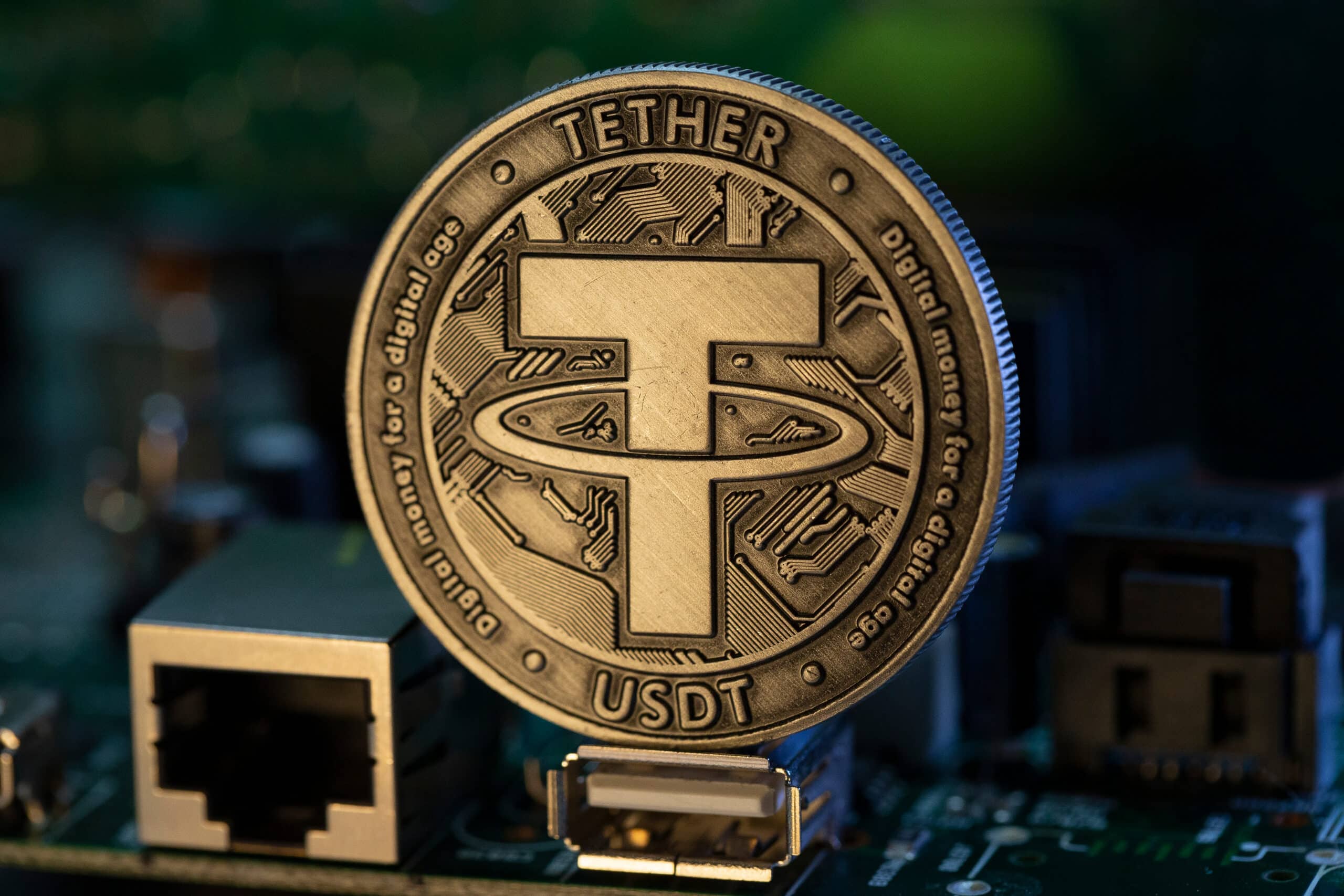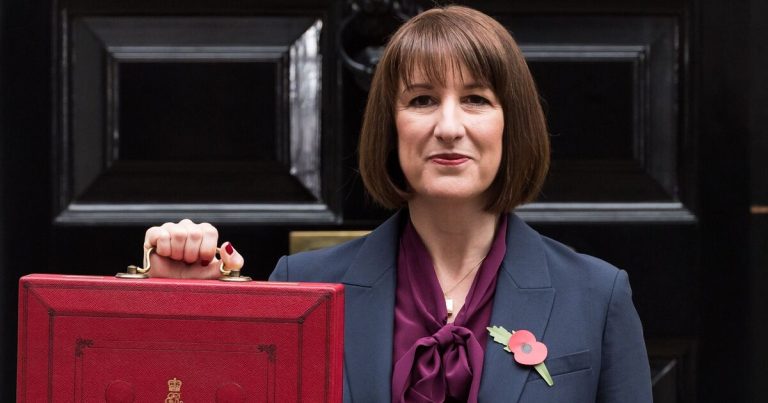
New stablecoin bills in the house and senate, designed to regulate the booming $200 billion industry, would prohibit Tether from issuing new tokens in the US, unless it can find an auditor and meet other key requirements.

Tether is the largest stablecoin by market cap.
(Shutterstock)
Posted February 7, 2025 at 12:18 pm EST.
A pair of new congressional bills to regulate stablecoins could bar El Salvadorian-based Tether from issuing new USDT digital dollars in the United States. It is also possible that the token could be delisted at major exchanges like Coinbase, Kraken, and Gemini. USDT is the world’s largest stablecoin, with approximately $141 billion in market cap according to CoinGecko.
The Guiding and Establishing National Innovation for U.S. Stablecoins (GENIUS) Act, introduced in the Senate by Sen. Bill Hagerty (R-Tenn.) and co-signed by Senate Banking Chair Tim Scott (R-S. Carolina), Digital Assets Subcommittee Chair Cynthia Lummis (R–Wyo.), and Sen. Kirsten Gillibrand (D-New York) on Tuesday, would bar firms that do not maintain one-to-one reserves and have a United States-based accounting firm from issuing stablecoins in the United States.
A companion bill in the House, of which a discussion draft was released Thursday, has similar compliance requirements. The bill, titled the Stablecoin Transparency and Accountability for a Better Ledger Economy (STABLE) Act of 2025, was introduced by House Financial Services Committee Chairman French Hill (R-Ark.) and Digital Assets Subcommittee Chairman Bryan Steil (R-Wis.). “Tether will fall where every other issuer falls,” a congressional staffer familiar with the text of the bill explained. “Comply or don’t be an issuer in the US.”
Read More: Crypto-Savvy Rep. French Hill Will Chair House Financial Services Committee
Tether has never produced an audit, though it provides quarterly attestations, or snapshots, of its reserves through the accounting firm BDO. Its latest report, issued last week showed that Tether had $143 billion in assets against the outstanding supply of USDT at the time ($137 billion).
Tether CEO Paolo Ardoino has previously suggested a willingness to get audited but says that no U.S. firm will take them on as a client. In a July 2024 interview with Forbes he said, “A big auditing firm might service 50,000 banks, and each of those banks would pay them maybe $1 million annually. Imagine that you have these 50,000 banks, and then you have one stablecoin company. What would your 50,000 customers say about the fact that you onboarded a stablecoin that is probably its strongest competitor? So, it is not very easy as a selling point for the big four companies (Deloitte, PwC, KPMG and EY).” Tether did not respond to a request for comment.
Tether’s biggest competitor, $56 billion USDC, issued by Boston-based Circle Financial, is audited by Deloitte and produces regular attestations.
Read More: Tether Explores Lending to Commodity Traders: Report
The compliance requirements of the two congressional bills could also complicate decisions from U.S. exchanges regarding whether to keep USDT on their platform at all. The asset was delisted late last year from many prominent European exchanges that had to come in compliance with the landmark Markets in CryptoAsset Legislation (MiCA). Though so far neither congressional bill makes that explicit demand.
“While U.S. regulated exchanges would likely prioritize compliant stablecoins, delisting isn’t an automatic requirement,” explained Laurenth Alba, an attorney and Head of Business Development at Rome Protocol. “Instead, exchanges will assess risk, if Tether does not obtain a federal or state-issued stablecoin license, some platforms may voluntarily reduce exposure or restrict U.S. customers from trading USDT to avoid regulatory risk.” Coinbase, Kraken, and Gemini did not respond to requests for comment.
Complications could come even if USDT does not get delisted at exchanges. One lawyer who had examined the stablecoin legislation thought it likely that a forthcoming market structure bill would instruct crypto companies to work with regulated stablecoin issuers, “If you were to structure a regulation that would reward people for complying, you also have to take steps to make it harder to operate for people who don’t comply,” he explained.
Neither bill provides a grace period for Tether, or anyone else, to meet all of the stated requirements. However, it will likely still take months for the companion bills to pass both chambers of congress and eventually become signed into law by President Donald Trump.
Read More: President Trump Declares Crypto a National Priority in Executive Order
One factor that could help Tether is that Trump’s nominee to lead the Department of Commerce, the billionaire Chief Executive Officer of asset manager Cantor Fitzgerald, is a long-time business partner and investor in the company. The lawyer familiar with the stablecoin legislation explained that they believed Tether did “not lack the resources,” to become compliant if they so desired.
Representatives for Hagerty and Hill did not respond to requests for comment by press time.






